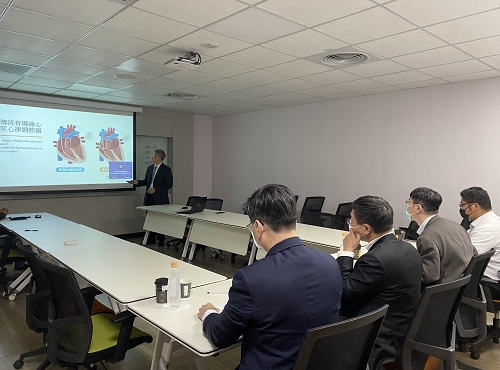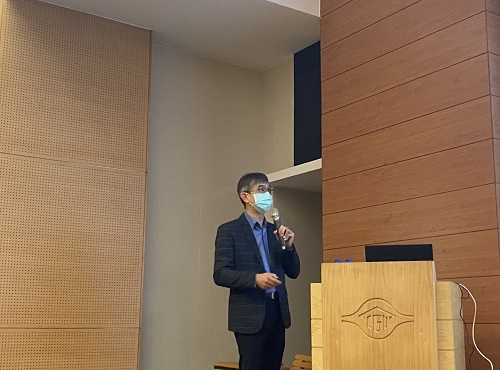Chang Gung University was honored to be named as an anchor university under the SPARK Taiwan Program
Chang Gung University was honored to be named as an anchor university under the SPARK Taiwan Program
The SPARK Taiwan Program aims to promote the cultivation of Taiwan’s talents in biomedical, medical material, and translational medicine research. The program organiser works in close collaboration with Stanford University, the cradle of the U.S. biotech industry development. In line with the training model and resources of the Stanford SPARK Program, the program organizer selects local universities that specialize in biomedical and translational medicine research as anchor universities. The ultimate goal is to build an environment suitable for the cultivation of biomedical personnel in response to Taiwan's local needs.
The Master Plan Office of the SPARK Taiwan Program selects only six universities each year as primary key training universities. With the support of Chang Gung Memorial Hospital, Taiwan's premier medical system, coupled with many years’ coaching and incubation experience of the Office of Technology Development and Industry Liaison and the Center for Innovation and Incubation, along with the cooperation of colleges to integrate superb medical resources and healthcare, Chang Gung University was nominated by the Department of Life Sciences of the Ministry of Science and Technology as a key university to cultivate biomedical talents. Being one of the key universities under the SPARK Taiwan Program, Chang Gung University aims to accelerate the cultivation of biomedical talents and promote the value addition of innovative technology as well as the commercialization of research and development results for our academic, research and medical personnel.
After the university became a key university under the SPARK Taiwan Program, CGU established the CGU SPARK Office to speed up the integration of relevant resources required by our research teams. Furthermore, the office also assisted our teams to connect with large-scale programs. At the same time, professionals and experts were hired to assist in the cultivation of high-level biomedical talents with entrepreneurial spirit. We also arranged industrial matchmaking and other related activities. It is worth mentioning that by setting the goal of accelerating R&D in translational medicine and promoting campus-derived start-up companies, the CGU SPARK Office provides all-round assistance for the training teams and assists our teams to acquire relevant information and knowledge during the development of new medical materials and new drugs. Then through the one-on-one guidance of industry professionals and technical coaches, our teams are growing rapidly.
On November 12, the CGU SPARK Office invited Prof. Te-Li Chen, chairman of Biogent Therapeutics Co. Ltd., to speak at the Kick-off Meeting as a keynote speaker of this year's SPARK Program. Chairman Te-Li Chen said that business strategies required for the commercialization of biomedical products and the development of medical materials deserve our attention. In addition to identifying the needs of target customers and payers, decisions must be made in response to the challenges of research and development funding. Moreover, to increase our teams’ commercial knowledge and cross-field interaction with the industry, the CGU SPARK Office also cooperates with the Biomedical Commodity Center, Tiger Accelerator, and Taipei CoSpace. The office invites frontline professionals to guide our teams, promotes exchanges between our teams and the industry, and offers courses such as technology commercialization, regulations related to the clinical setting, patent search, and other relevant coaching courses. At the same time, the CGU SPARK Office works closely with the Association of Angel Investors, the Equity Association, the Chinese Business Incubation Association, the Taiwan Bio Industry Organization, and other associations or organizations. The office aims to provide our teams with relevant knowledge and information regarding setting up new companies and help our teams to grow, so as to provide more professionals in relevant fields for our society.
 The review committee meeting (Committee members from the left: Secretary-General Stephen Lai, Secretary-General Zhi-Hua Lin, Prof. Ching-Shiun Chen, dean of the Office of Technology Development and Industry Liaison, and Prof. Kun-Mu Lee) |
|
